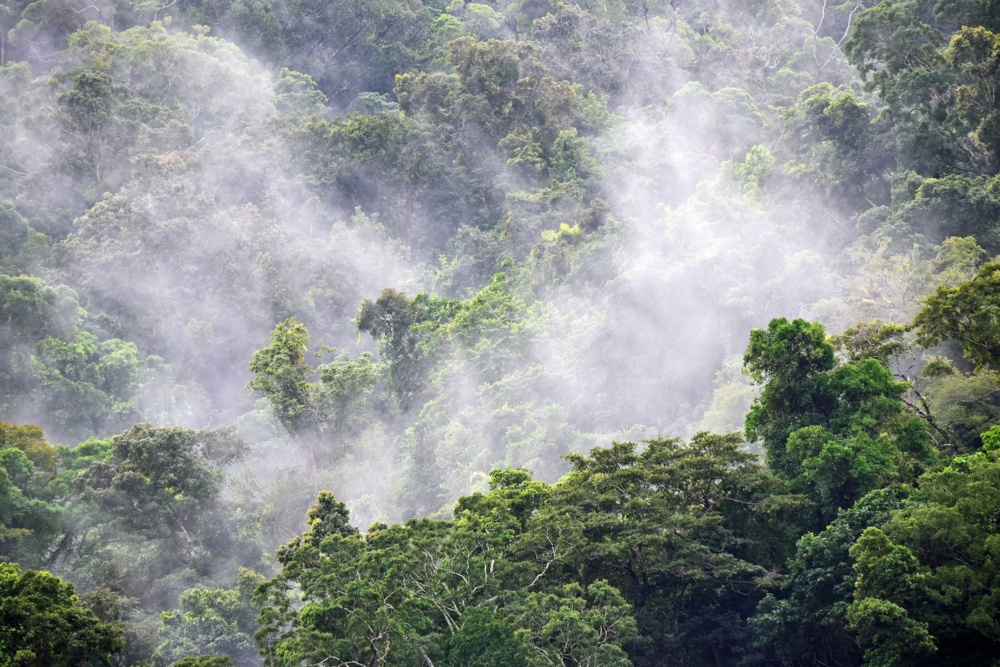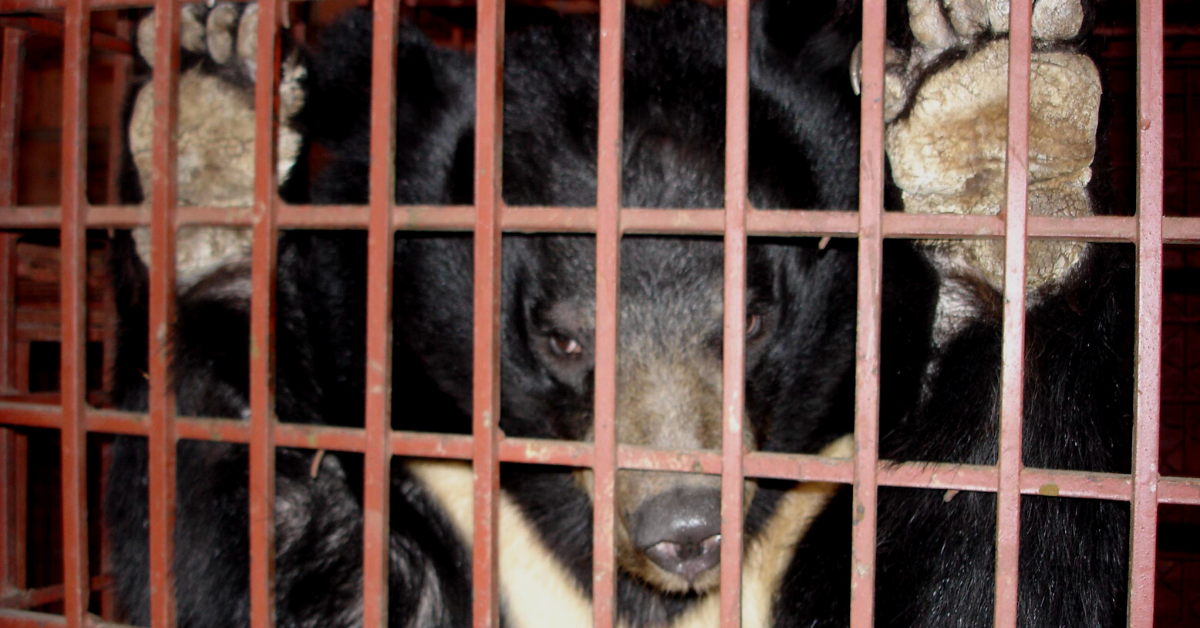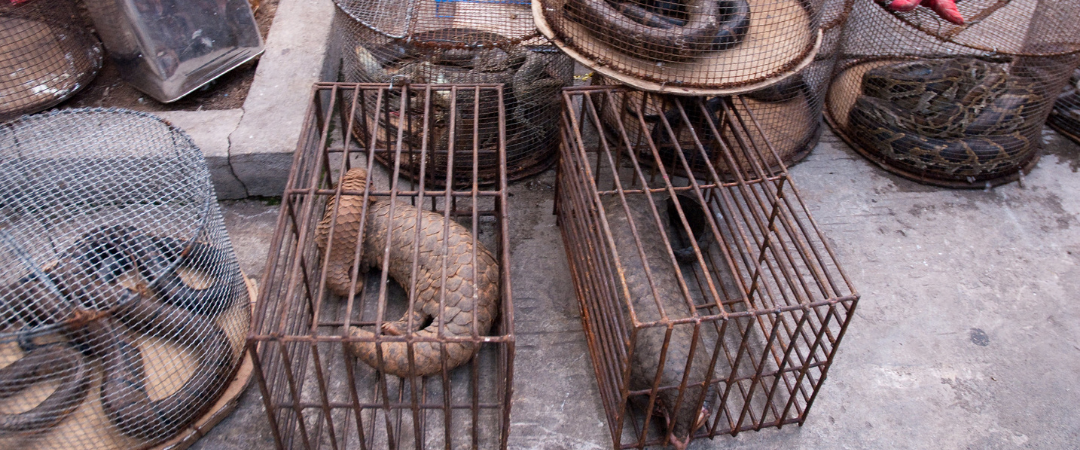
Commercial wildlife markets and the green recovery
Our Executive Director Steve Trent featured in the Times of India today, interviewed by Vijay Pinjarkar. They spoke about pandemics, wildlife, and how to build back better from Covid-19.
Sign our petition to shut down commercial wildlife markets here.
What role has EJF played in tackling the Covid-19 spread?
To cut future pandemics off before they begin, we are running a public awareness campaign to stop the commercial wildlife trade. This trade has been linked to many pandemics; Covid-19 is just the latest. By banning commercial wildlife markets, we can stop future pandemics before they begin.
Is there any strong evidence that Covid-19 spread from animals to humans?
Yes, there is no other possible way Covid-19 could have reached us. Virologists, medical journals and biodiversity experts are in full agreement; this virus spread from animals to humans, specifically at a commercial wildlife market.
How can such virus-carrying animal species be naturally controlled?
Healthy ecosystems, in which wildlife is able to thrive without being driven into close contact with humans, are a crucial barrier of protection against pandemics. The key issue which spreads diseases from wildlife to us – be it Ebola, HIV, or Covid-19 – is close contact with animals. That’s why it is so important to protect and restore natural habitats wherever we can.
What has been Covid-19’s impact on wildlife conservation and environment policies?
Some countries, including China and Vietnam, have adopted restrictions on the wildlife trade, and introduced new laws to protect wildlife. However, they do not go far enough. For example, animals can still be sold as pets or medicine – as a result, these laws will not have the intended effect. The illegal wildlife trade, which pushes many species closer to extinction, is enabled by these weak laws, allowing illegally caught animals to be smuggled into legal supply chains.
We must finally get serious about zoonotic diseases and their causes. This means ending our destruction of nature, starting with commercial wildlife markets and the protection and restoration of wild habitats. This pandemic came from China, but more will come from other places unless we make an effort to live in harmony with nature.
What policy measures do you suggest to combat the threat of zoonotic diseases?
It’s simple: Prevention is better than cure. If Covid never jumped to humans, we wouldn’t be facing millions of dead and trillions of dollars in economic damage. First, ban commercial wildlife markets, globally and for good, and crack down on the illegal wildlife trade. We also need to tackle deforestation, factory farming and human exploitation, and degradation of nature. Rebuilding from Covid-19 with a fully green recovery will do more than any other actions to stop future pandemics in their tracks. All too often actions such as these are portrayed by vested interests as a ‘cost’. But the reality is spending now to take these steps would be the biggest cost saving of all time.
Is large-scale deforestation responsible for the Covid-19 spread?
Not directly for Covid-19. The evidence suggests that Covid-19 came from a commercial wildlife market in Wuhan. However, the exploitation of nature which meant all those different species could end up in that market, spreading the virus which ultimately reached humans, is facilitated and amplified by deforestation. Deforestation is one of the key factors which have caused other pandemics and will cause them in the future.
Experts say that there are 1.7 million undiscovered viruses in animals and 827,000 could infect humans. Commercial wildlife markets, deforestation and intensive agriculture all increase human contact with these viruses and make another pandemic much more likely. To get out of the “era of pandemics”, we need to fundamentally change our relationship with nature.
What needs to be done for the green recovery post Covid crisis?
Political and business leaders need to realise that the economy is a wholly owned subsidiary of the environment. We cannot have healthy economies without a healthy planet. Covid-19 has shown us that our relentless exploitation of the natural world has serious consequences, but the huge suffering caused by Covid-19 pales into insignificance compared to the upcoming effects of climate breakdown and wildlife destruction. A green recovery involves meeting – as a minimum – the targets of the Paris Agreement, shifting to a global circular economy, and ending deforestation, commercial wildlife markets, and exploitation of nature. This can be a positive change even before we look at the health benefits. A green recovery will provide thriving economies and a safer planet for everyone.
This interview originally appeared on the Times of India website and is reposted here with permission.
SIGN UP FOR OUR EMAILS AND STAY UP TO DATE WITH EJF

